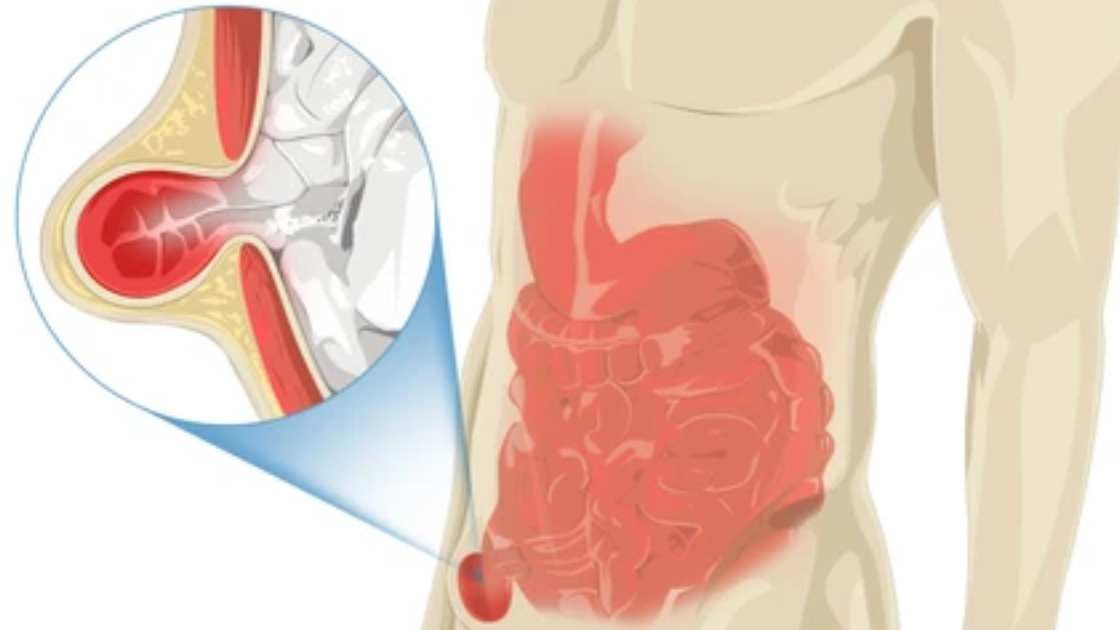How to Prevent a Hernia: Essential Strategies for a Stronger Core

Preventing a hernia is crucial for maintaining abdominal health and avoiding the discomfort associated with this condition. A hernia occurs when an internal organ pushes through a weak spot in the abdominal wall, which can cause pain and other complications. This comprehensive guide outlines effective strategies to prevent a hernia and maintain a healthy abdominal wall. By focusing on lifestyle adjustments, exercise routines, and dietary changes, you can significantly reduce your risk of developing a hernia.
Understanding Hernias and Their Risk Factors
To effectively prevent a hernia, it’s important to understand the condition’s causes and risk factors. Hernias often develop due to a combination of muscle weakness and increased abdominal pressure. Common types include:
- Inguinal Hernia: Occurs in the groin area, more common in men.
- Hiatal Hernia: Part of the stomach pushes through the diaphragm into the chest cavity.
- Umbilical Hernia: Develops near the belly button.
- Incisional Hernia: Develops through a prior surgical incision.
Risk factors for developing a hernia include obesity, chronic coughing, heavy lifting, and poor muscle tone. Addressing these factors is key to preventing a hernia.

1. Maintain a Healthy Weight
One of the most effective ways to prevent a hernia is by maintaining a healthy weight. Excess weight increases abdominal pressure, which can contribute to hernia development. To attain and sustain a healthy weight:
- Balanced Diet: Eat a variety of nutrient-dense foods, including fruits, vegetables, lean proteins, and whole grains. Minimize processed foods and sugary drinks.
- Regular Exercise: Engage in at least 150 minutes of moderate aerobic activity per week, along with two days of strength training.
Keyword Density: To prevent a hernia, maintaining a healthy weight is crucial. Keeping excess weight off reduces the pressure on your abdominal wall and supports overall health.
2. Strengthen Your Core Muscles
A strong core is essential for preventing a hernia. Core-strengthening exercises help build abdominal muscle strength, providing support to the abdominal wall. Effective exercises include:
- Planks: Perform various plank exercises, such as forearm and side planks, to engage your core muscles.
- Crunches: Do traditional and variation crunches to target the abdominal muscles.
- Leg Raises: Lift your legs while lying on your back to strengthen the lower abdomen.
Keyword Density: Strengthening your core muscles is a powerful strategy to prevent a hernia. Regular core exercises contribute to a strong and resilient abdominal wall.
3. Use Proper Lifting Techniques
Improper lifting can significantly increase your risk of developing a hernia. To lift safely:
- Bend at the Knees: Use your legs rather than your back to lift heavy objects.
- Keep the Load Close: Hold items close to your body to reduce strain on your abdomen.
- Avoid Twisting: Turn your entire body rather than twisting your torso while lifting.
Keyword Density: Using proper lifting techniques is essential to prevent a hernia. Safe lifting practices minimize abdominal strain and reduce hernia risk.
4. Prevent Straining During Bowel Movements
Straining during bowel movements can increase abdominal pressure and contribute to hernia development. To prevent straining:
- Increase Fiber Intake: Eat high-fiber foods such as fruits, vegetables, whole grains, and legumes to promote regular bowel movements.
- Stay Hydrated: Drink plenty of water to keep your stool soft.
- Respond Promptly: Don’t delay or ignore the urge to have a bowel movement.
Keyword Density: Preventing straining during bowel movements is crucial to lower the risk of a hernia. Managing bowel habits effectively reduces abdominal pressure.
5. Address Chronic Coughing or Sneezing
Chronic coughing or sneezing can exert repeated pressure on the abdominal wall, increasing hernia risk. To manage persistent symptoms:
- Seek Medical Treatment: Consult a healthcare provider to address the cause of chronic cough or sneeze.
- Use Cough Suppressants: Consider medications to manage symptoms.
- Practice Good Hygiene: Wash your hands regularly to avoid infections that may cause coughing.
Keyword Density: Addressing chronic coughing or sneezing is vital for preventing a hernia. Managing these symptoms helps reduce pressure on the abdominal wall.
6. Avoid Heavy Lifting and Overexertion
Heavy lifting and overexertion can strain the abdominal wall and increase the likelihood of a hernia. To avoid this risk:
- Use Proper Equipment: Utilize lifting aids like dollies or hoists to reduce strain.
- Take Frequent Breaks: Avoid continuous heavy lifting and allow your muscles to rest.
- Seek Assistance: Get help when handling large or heavy objects to distribute the load.
Keyword Density: Avoiding heavy lifting and overexertion is crucial to prevent a hernia. Proper equipment and assistance help minimize abdominal strain.
7. Manage Preexisting Medical Conditions
Certain medical conditions can heighten hernia risk. Effectively managing these conditions helps prevent hernias:
- Obesity: Work with a healthcare provider to achieve and maintain a healthy weight.
- Chronic Coughing: Treat underlying conditions causing persistent coughs.
- Pregnancy: Consult with your healthcare provider about safe exercises and techniques to support your abdominal wall during pregnancy.
Keyword Density: Managing preexisting medical conditions is essential for preventing a hernia. Addressing health issues supports abdominal strength and reduces risk.
8. Wear Supportive Clothing
Supportive clothing can offer additional support to the abdominal wall, especially during physical activities. Consider:
- Supportive Belts: Hernia belts or support bands can help reduce strain.
- Compression Garments: Compression clothing may provide additional support and help prevent hernias in some individuals.
Keyword Density: Wearing supportive clothing is an effective strategy to prevent a hernia. These garments provide extra support to the abdominal area and minimize strain.
9. Monitor and Manage Your Diet
A well-balanced diet supports overall health and helps prevent hernias. Focus on:
- Adequate Protein: Include lean proteins like chicken, fish, and legumes to support muscle strength.
- Essential Vitamins and Minerals: Ensure adequate intake of vitamins and minerals for tissue health.
- Healthy Fats: Include healthy fats from sources such as avocados, nuts, and olive oil.
10. Regular Health Check-Ups
Routine health check-ups can help detect early signs of potential issues that may increase hernia risk. Routine visits to your healthcare provider can:
- Identify Risk Factors: Discuss health concerns or symptoms that may contribute to hernia development.
- Receive Preventive Care: Obtain guidance on preventive measures and lifestyle modifications.
- Stay Informed: Keep up with the latest health recommendations and preventive strategies.
Conclusion
Preventing a hernia involves a combination of lifestyle changes, proper techniques, and managing underlying health conditions. By maintaining a healthy weight, strengthening your core, using proper lifting techniques, and avoiding excessive strain, you can significantly reduce your risk of developing a hernia. Incorporate these powerful strategies into your daily routine to support a strong and healthy abdominal wall, ultimately reducing your chances of hernia development and promoting overall well-being.
Frequently Asked Questions
A hernia happens when an internal organ protrudes through a weakened area of the abdominal wall. To prevent a hernia, maintain a healthy weight, strengthen core muscles, use proper lifting techniques, and avoid straining during bowel movements.
To strengthen your core, incorporate exercises such as planks, crunches, and leg raises into your fitness routine. A strong core provides support to the abdominal wall and helps prevent hernia development.
Use proper equipment like dollies or hoists, take frequent breaks, and seek assistance when handling heavy objects. These practices reduce strain on your abdominal wall and lower the risk of hernias.
Maintaining a healthy weight reduces abdominal pressure, which is a key factor in hernia development. A balanced diet and regular exercise are crucial for weight management and hernia prevention.
Yes, a well-balanced diet supports overall health and can help prevent hernias. Focus on eating high-fiber foods, staying hydrated, and avoiding excessive intake of processed foods and sugary drinks.
Seek medical treatment for persistent cough or sneeze, use cough suppressants if necessary, and practice good hygiene to prevent infections. Managing these symptoms can reduce abdominal pressure and hernia risk.





















